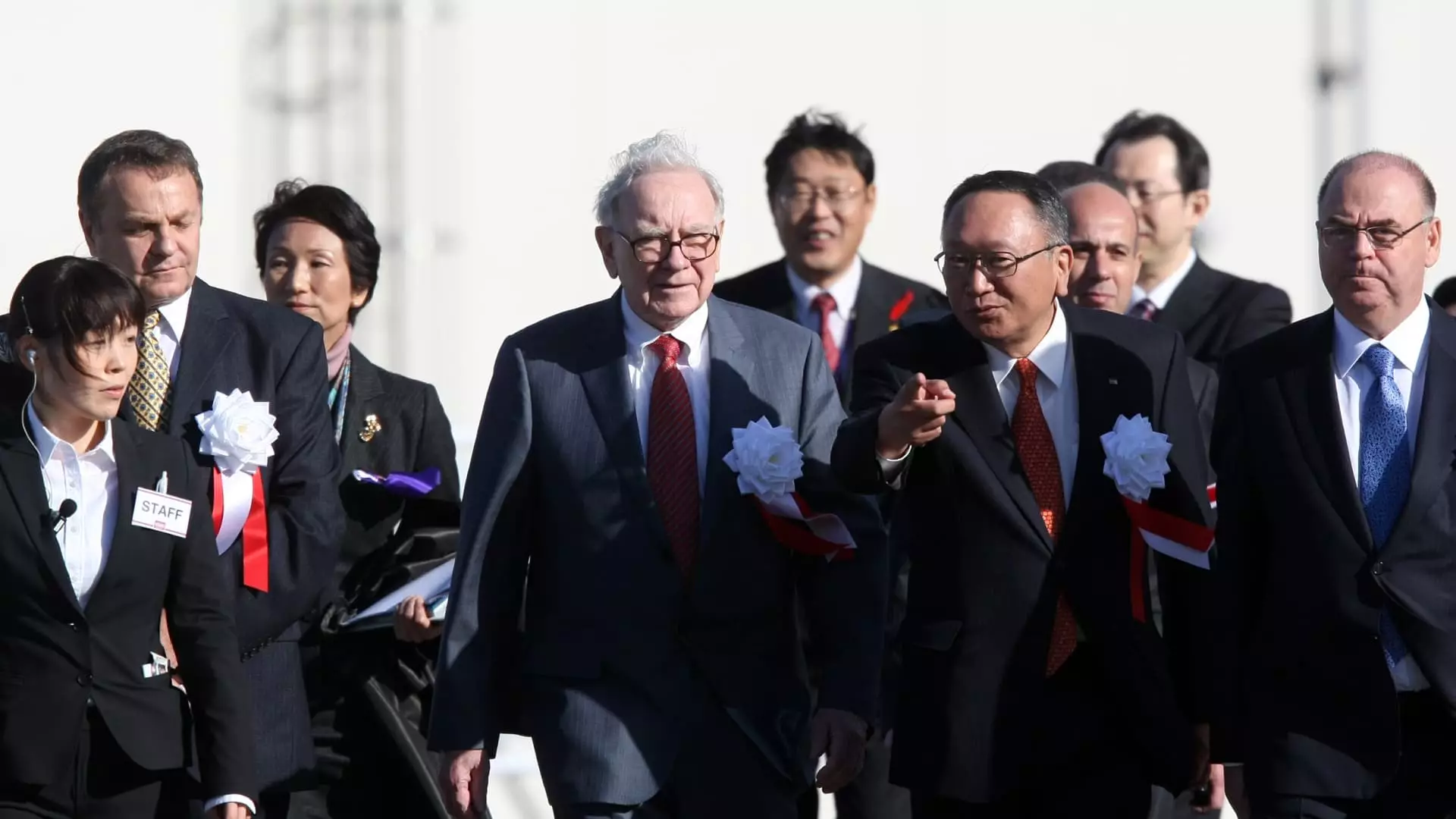Berkshire Hathaway is reinforcing its long-term strategy regarding its substantial investments in Japan. As articulated by Warren Buffett in his recent annual letter to shareholders, the conglomerate has reached an understanding with five major Japanese trading companies to increase their equity stake beyond the previously established limit of 10%. This development is noteworthy as it signifies a shift in the company’s stance, encouraging deeper investment in these key players—Itochu, Marubeni, Mitsubishi, Mitsui, and Sumitomo—often referred to as sogo shosha, Japan’s largest trading houses. Buffett’s emphasis on maintaining a sustained commitment reveals a strategic pivot that aligns with Berkshire’s broader investment philosophy of fostering long-term relationships.
Initially, Berkshire had capped its holdings in each of these trading companies at 10%, an approach that reflected a cautious entry into the Japanese market. However, as Buffett noted, the subsequent relaxation of this cap indicates a mutual confidence between Berkshire and these firms. The agreement to escalate ownership signifies a deepening of strategic ties that not only promises enhanced financial returns but also indicates a potential collaborative approach in operations and capital deployment. This strategy mirrors Berkshire’s traditional operating style, which thrives on building significant stakes in reliable businesses.
Financial Performance and Market Value
As of the close of 2024, Berkshire’s investment in the Japanese trading houses held a market value of approximately $23.5 billion against an entry cost of $13.8 billion, showcasing an impressive return on investment. This substantial gain underlines Buffett’s knack for identifying solid investments with robust management teams. The letter highlights the strengths of these companies’ management and investor relations, positioning them as reliable partners for Berkshire in the ever-competitive international market.
Gaining Through Currency Strategies
Buffett’s approach also reflects a keen understanding of financial dynamics, as evidenced by Berkshire’s strategic issuance of yen-denominated bonds. By financing its investments through these bonds, Buffett mitigates foreign exchange risks, capitalizing on fluctuations in currency values. With $2.3 billion in after-tax gains from Japanese bonds—partly attributable to the dollar’s strength against the yen—Berkshire Hathaway’s strategy exemplifies how currency appreciation can be harnessed to improve financial outcomes.
Buffett’s projections for annual dividend income from the Japanese holdings estimate around $812 million, demonstrating the financial benefits of this investment strategy. He believes that the continuity of this positioning will prevail even beyond his tenure, suggesting that future leaders like Greg Abel will maintain this relationship, propelling further growth and diversification. Buffett’s optimistic outlook for these trading houses, despite their recent struggles, underscores the inherent resilience he sees in these companies, which he believes will yield potential long-term benefits for Berkshire Hathaway.
Berkshire Hathaway’s evolving strategy in Japan represents a calculated risk, aimed at building enduring partnerships that promise future financial sustainability and diversity. By fostering robust ties with established trading houses, Buffett is not only securing immediate gains but is also laying the groundwork for a lasting legacy of successful international investment.

